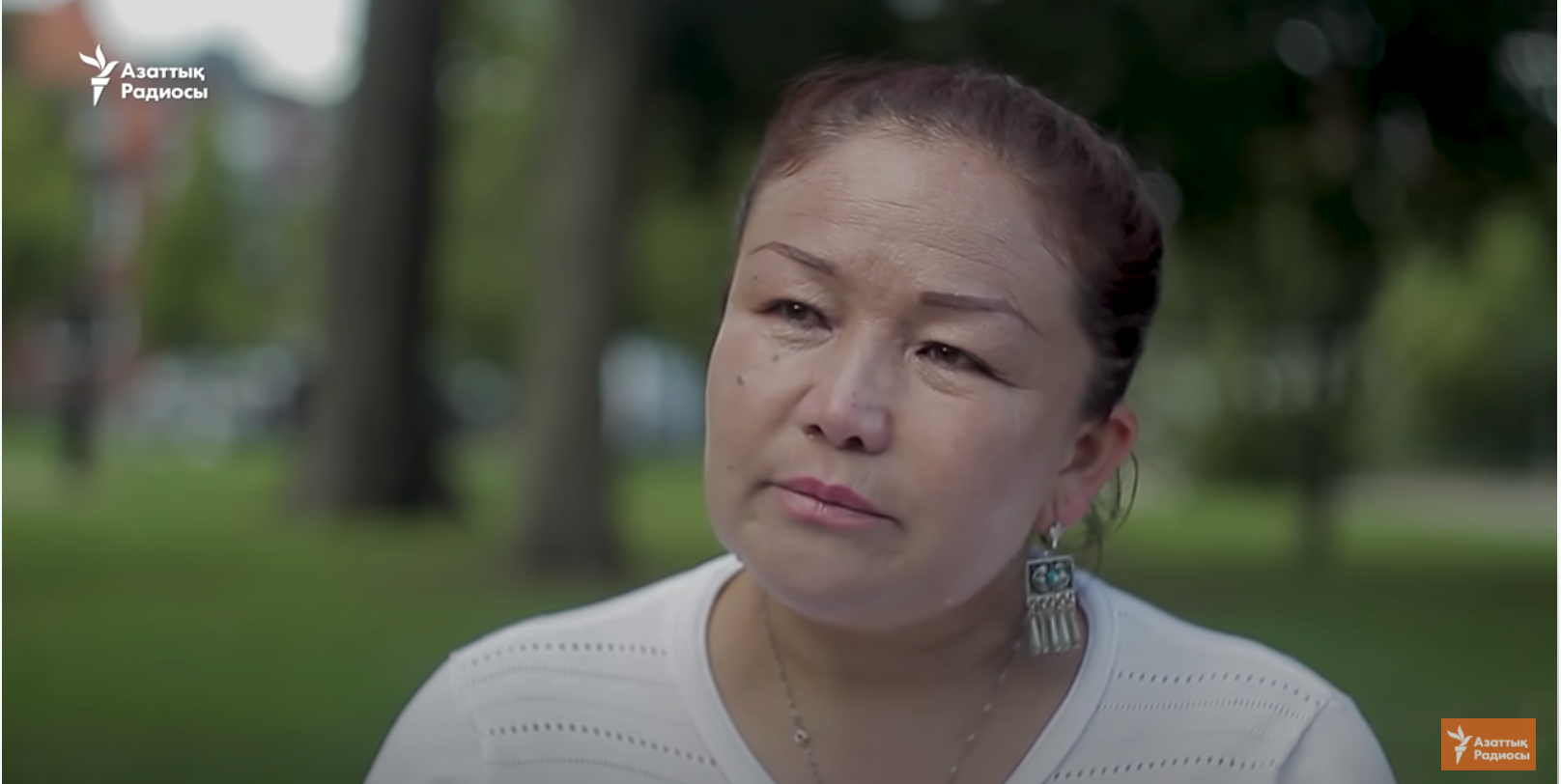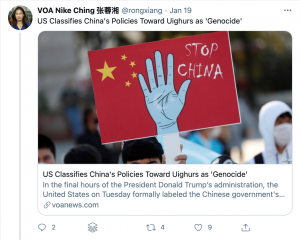USAGM networks continue to expose horrors of China’s ‘re-education’ camps

The networks of the U.S. Agency for Global Media continue to provide unrivaled news coverage of China’s treatment of ethnic Uyghur Muslims and other minorities in the northwest region of Xinjiang, including new firsthand accounts from ethnic Kazakhs and Kyrgyz minorities.
Exclusive reports from USAGM networks and other outlets have played a huge role in alerting the world to the vast network of camps where Chinese authorities are believed to have held up to 1.8 million Uyghurs and other Muslim minorities since early 2017. The U.S. government in January designated the Chinese government’s policies targeting ethnic Uighur Muslims and other minorities in the northwest region of Xinjiang as genocide.

New reports from Radio Free Europe/Radio Liberty focus on the horrors faced by ethnic Kazakhs and Kyrgyz minorities who managed to escape what China calls “re-education” camps.
RFE/RL’s Kazakh Service’s TV documentary, “Between Dictatorship and Democracy,” follows the story of Sairagul Sauytbay, an ethnic Kazakh whistleblower who said she faced torture in a Chinese camp. RFE/RL has followed her since her trials in Kazakhstan, through to the moment she escaped to Sweden after Kazakh authorities denied her political asylum request. One year later, a Kyrgyz Service journalist visited her in Sweden to see how her life has changed. The documentary premiered on January 14 in both Kazakh and Russian.
In 2020, Sauytbay was awarded the U.S. State Department’s International Women of Courage Award for providing firsthand details of the human rights situation in the camps. She told VOA at the time that she hoped the award would “help the plight of the voiceless Uyghurs and Kazakhs oppressed in China.” A medical doctor, she said she was forced to train “political ideology” instructors while she was detained.
Current Time, USAGM’s 24/7 TV and digital network for Russian speakers around the world, tracked down and interviewed ethnic Kyrgyz and Kazakhs who are trying to locate and rescue relatives in China’s infamous camps. Among them, a Kazakh musician whose father died in the camps. His father had been arrested and sentenced without a trail for 20 years for helping a neighbor write a complaint letter to Beijing about local authorities who beat a family member to death. “My father believed so much in the rule of law and the judicial system in China. Unfortunately, they did not reciprocate,” he told Current Time.
Radio Free Asia’s Uyghur Service, long credited with being the first to expose the mass Uyghur detentions, was able to confirm in January that a prominent Uyghur poet and author, Haji Mirzahid Kerimi, 82, died while serving an 11-year prison for writing five books about Uyghur culture that the Chinese government had blacklisted.
RFA’s Uyghur Service in late 2020 was able to uncover satellite imagery that appears to show a cemetery and crematorium separating two internment camps in northwest China’s Xinjiang Uyghur Autonomous Region. The new images are raising fears that government authorities are working to cover up deaths in the facilities, RFA reported.
The service also broke stories in 2020 on the forced sterilization and sexual abuse of female detainees and the situation facing “orphaned” children whose parents have been detained. Several members of RFA’s Uyghur Service have had family members in China detained or jailed in retaliation for their work at RFA.
Programming from USAGM’s Middle East Broadcasting Network likewise has put a spotlight on China’s treatment of Uyghurs and other minorities. Due to China’s foreign investments in the Middle East and its growing influence in the region, few Arabic-language media outlets will address this issue head-on and the humanitarian crisis is largely unknown in the region, absent MBN coverage.
MBN regularly covers statements from the White House and Congress regarding the plight of the Uyghur population. Alhurra reported on Uyghur activists who announced they documented the presence of approximately 500 camps and prisons run by the Chinese government; it also aired air the investigative documentary “Inside China,” which showed undercover footage from China’s restricted Xinjiang region.
